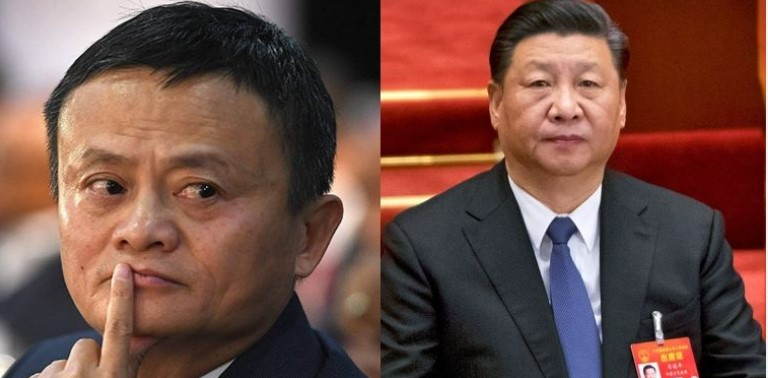Virendra Pandit
New Delhi: On October 22, his immediate predecessor, Hu Jintao, 79, was unceremoniously bundled out of the quinquennial 20th National Congress of the Chinese Communist Party (CCP)—with current embattled President Xi Jinping, 69, who had just got an unprecedented third term in office, nodding in the full glare of cameras!
On Thursday, Hu Jintao’s predecessor Jiang Zemin, who mended fences with the USA, died at 96, when the country he left on the path of global prominence is struggling to remain Communist and united in the face of nationwide protests against the ruling party, and, in particular, Xi Jinping.
But more disturbing news for China is its President’s bête noire and Alibaba Group Holding Ltd’s co-founder Jack Ma’s prolonged presence in Japan, which is China’s traditional enemy. According to the Financial Times, he is living in Tokyo for nearly six months after Beijing cracked down on the technology sector. And he brought in his own chef and security.
Ma, the best-known Chinese worldwide after Xi Jinping, and the voice of China’s technology czars has also been regularly visiting the US and Israel. He is a close friend of Masayoshi Son, founder of Tokyo-based SoftBank Group Corp., and an early investor in Alibaba.
Until last year, Ma was China’s wealthiest, and most popular technology leader. He had to retreat from the spotlight after he invited the Communist dictatorship’s wrath over his criticism of government regulation. This crackdown landed him in trouble with Beijing and derailed the mega-IPO of FinTech giant Ant Group Co. An expansive crackdown followed on the entire private sector in China, particularly aimed at reining in the power of internet firms.
The Jack Ma report surfaced when millions across China hit the road demanding that the Communist regime and Xi Jinping step down. The pro-democracy, mass agitation in Hong Kong has now reached the Chinese mainland itself as the irate citizens demand freedom and democracy. The government’s stringent Zero Covid measures and the Xinjiang fire sparked the current nationwide demonstrations, amid the Chinese economy plummeting to a 3.9 percent GDP growth this year—the lowest in three decades.
While the Chinese government is trying to douse these widespread fires—millions of people hit the roads of over 100 towns and cities this week violating the lockdowns clamped to enforce Zero Covid policy—the former leader of the 1989 Tiananmen Square protests said the ongoing demonstrations in China and a “violent” response from Beijing, could lead to the collapse of China’s ruling Communist Party and President Xi Jinping.
In a Facebook post, Wang Dan warned Xi Jinping against mobilizing the military, saying that if the CCP adopts “violent repressive policies” or opens fire on the protesters, as they did in 1989, the “collapse” of the CCP could happen soon, the media reported.
“I said early that ‘June 4’ only happens once. If the CCP dares to mobilize its troops to shoot again, the CCP will surely be overthrown,” Wang wrote.
Protests erupted on Saturday and Sunday across China over Xi Jinping’s brutal Zero-Covid policy, which led to the deaths of 10 people trapped in a sealed apartment fire at Urumqi, Xinjiang, after lockdown measures delayed emergency teams from reaching the victims.
The people were already boiling with anger for weeks. The flash point and the pushback had triggered memories of the Tiananmen Square incident on June 4, 1989, when pro-democracy protesters who took over Beijing’s city square were met with a brutal crackdown by armed troops. The Communist regime massacred thousands there to restore order.
Wang, who now lives in the US as an exiled political activist, was one of the most visible organizers of the 1989 protests. He said the protests against Xi Jinping brought “a new era in China.”
“If the CCP repeats itself 33 years later with more bloodshed, it could lead to greater backfire than before,” he declared.
Wang Dan also said the ongoing economic turmoil is why the end to the current protests “will differ from 1989” even if troops are ordered to use force. Because the plummeting economy will prevent the CCP from finding “anyway to ease people’s hatred once they crack down,”.
The decision to send in troops will “only lead to more intense confrontation and eventually the fall of the CCP.”

